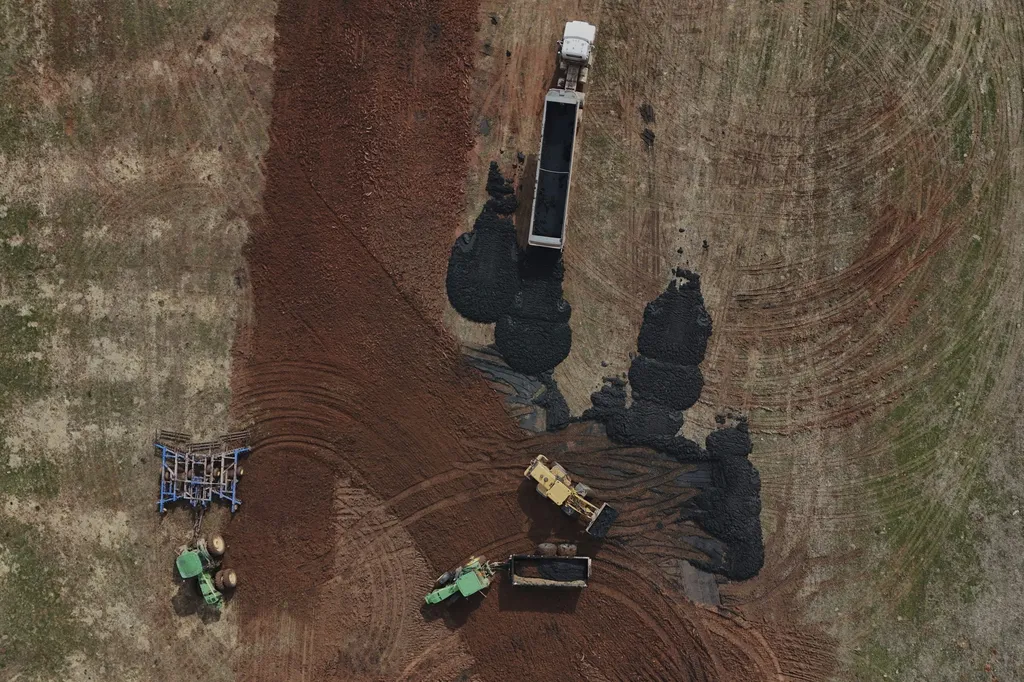In a significant development for agricultural producers and environmental advocates, a federal court in Washington, D.C., has dismissed a lawsuit filed by farmers and ranchers against the Environmental Protection Agency (EPA). The case, Farmer v. U.S. Envt’l Protection Agency, centered around the EPA’s alleged failure to regulate per- and polyfluoroalkyl substances (PFAS), often referred to as “forever chemicals,” under the Clean Water Act (CWA).
The plaintiffs, who are agricultural producers, claimed that their properties became contaminated with PFAS after they applied sewage sludge, also known as biosolids, as fertilizer. Many of the plaintiffs alleged lost profits, lost farm property, and adverse health effects as a result of this contamination. They argued that the EPA had violated the CWA by failing to identify at least eighteen different PFAS pollutants present in sewage sludge in its most recent biennial report. Additionally, they claimed that the EPA had further violated the CWA by failing to regulate the eleven PFAS pollutants that the agency has identified as present in sewage sludge.
PFAS are a large family of chemicals known for their strong carbon-fluorine bonds, which make them highly resistant to breaking down over time. They have been widely used in various consumer products due to their water- and grease-resistant properties. However, research has shown that PFAS are associated with a variety of health risks, including developmental delays in children and increased cancer risks. Due to their persistence and widespread use, PFAS can be found in water, soil, air, and food.
The CWA, enacted in 1972, aims to restore and maintain the chemical, physical, and biological integrity of the nation’s waters. One of the ways it works to achieve this goal is by requiring the EPA to regulate the disposal and use of sewage sludge. Specifically, the CWA mandates that the EPA identify toxic pollutants that may be present in sewage sludge at levels harmful to human health and the environment and then propose management practices for the sewage sludge containing those pollutants. The CWA also directs the EPA to review its regulations related to sewage sludge every two years to identify additional toxic pollutants and adopt any new regulations necessary for managing such pollutants.
In its ruling on September 29, 2025, the federal court dismissed the case, finding that the EPA had not violated the CWA either by failing to identify PFAS pollutants in its most recent biennial sewage sludge report or by failing to adopt regulations to manage the PFAS pollutants it has already identified. The court emphasized that while the CWA imposes a mandatory duty on the EPA to review its sewage sludge regulations every two years, it does not require the EPA to identify and regulate sewage sludge pollutants under that same timeframe. The court concluded that the plain language of the CWA requires the EPA to review its existing sewage sludge regulations every two years to facilitate the subsequent identification and regulation of pollutants.
While the court dismissed the case, it did so without prejudice, leaving open the possibility that the plaintiffs could refile the claims on a later date. Additionally, the court suggested other avenues that the plaintiffs could pursue to prompt the EPA to more strictly regulate PFAS. This decision highlights the ongoing challenges and complexities surrounding the regulation of PFAS and the protection of agricultural operations from contamination. As interest in regulating and cleaning up PFAS present in the environment continues to grow, this case serves as a reminder of the importance of continued vigilance and advocacy in this area.

